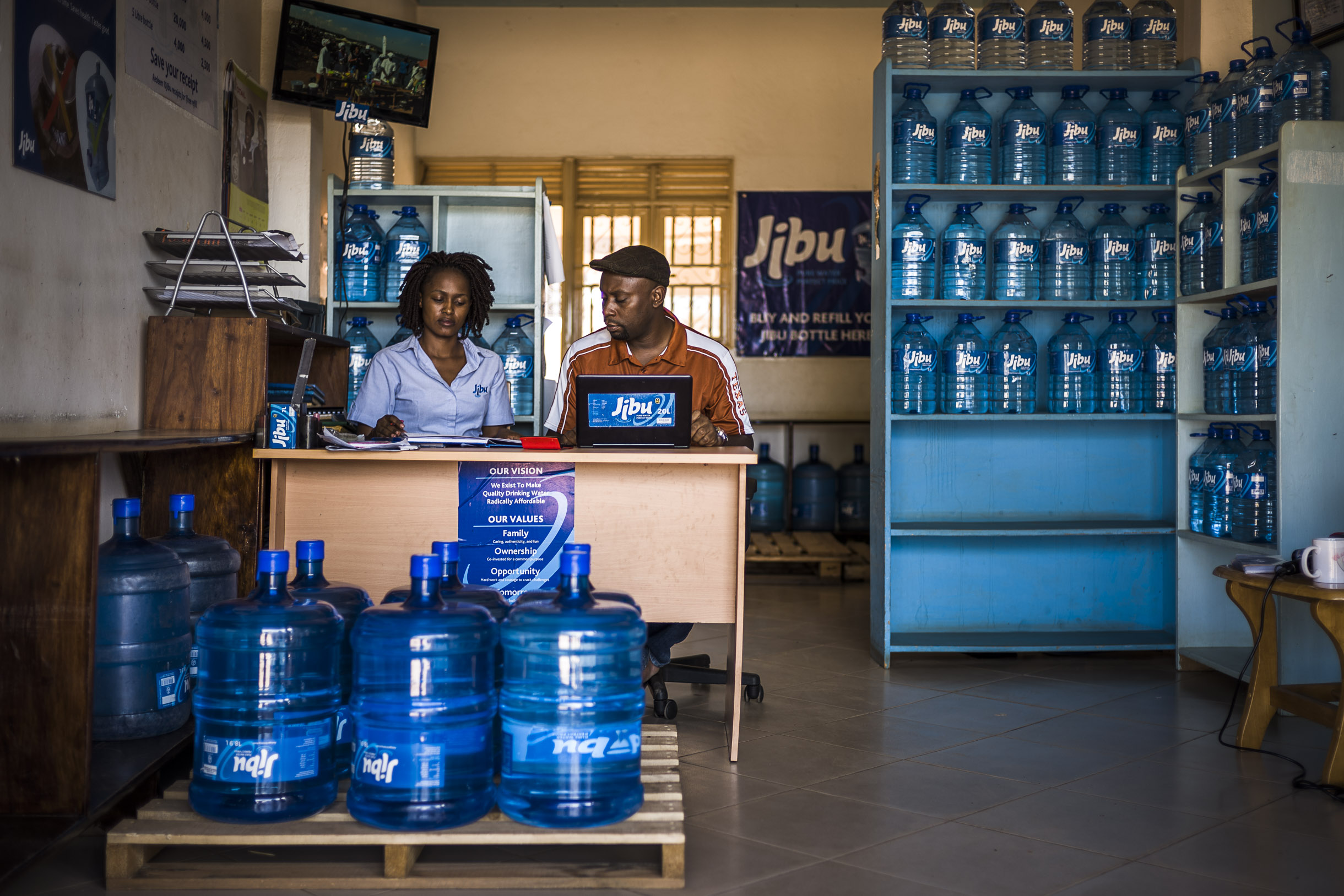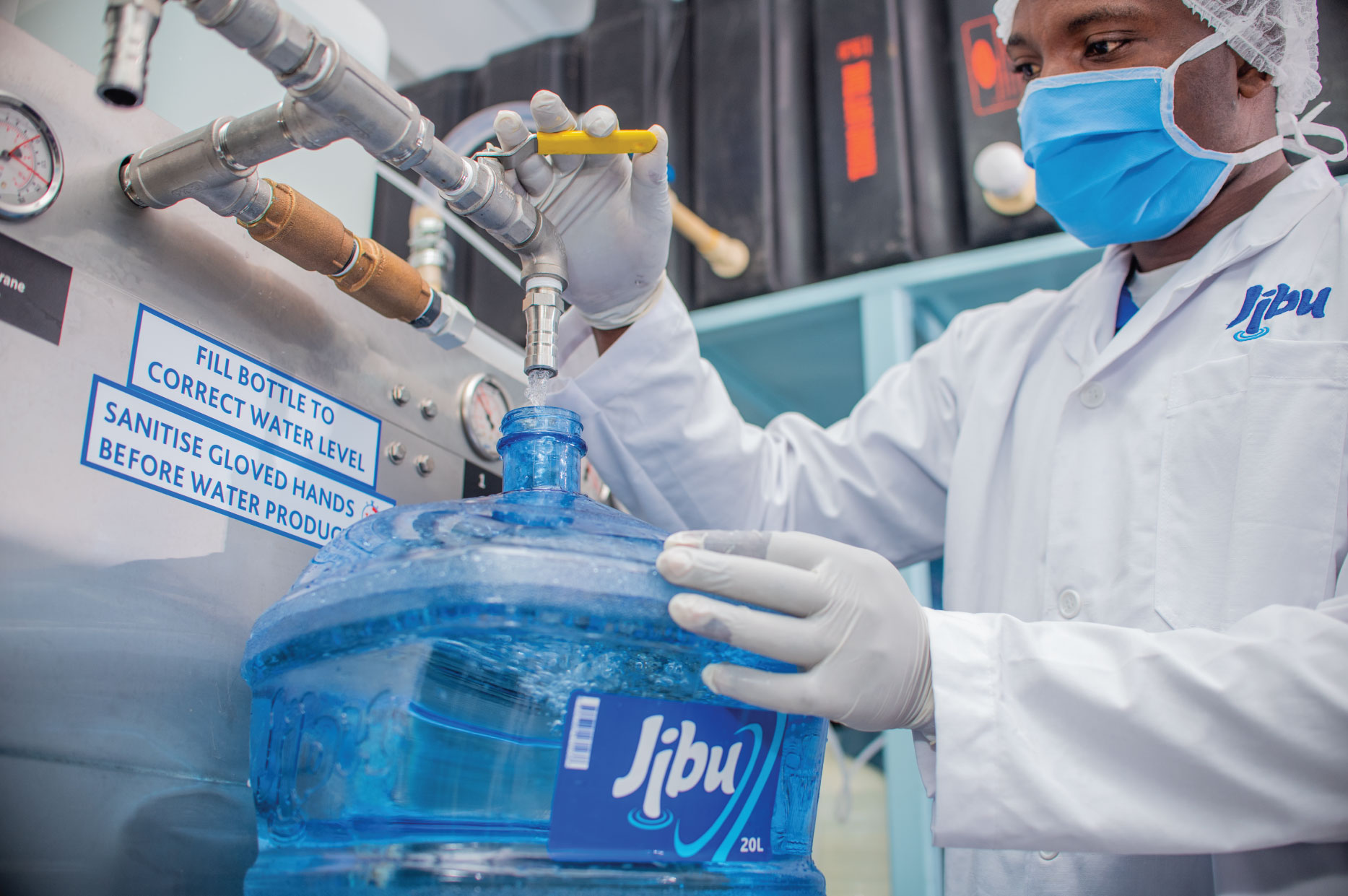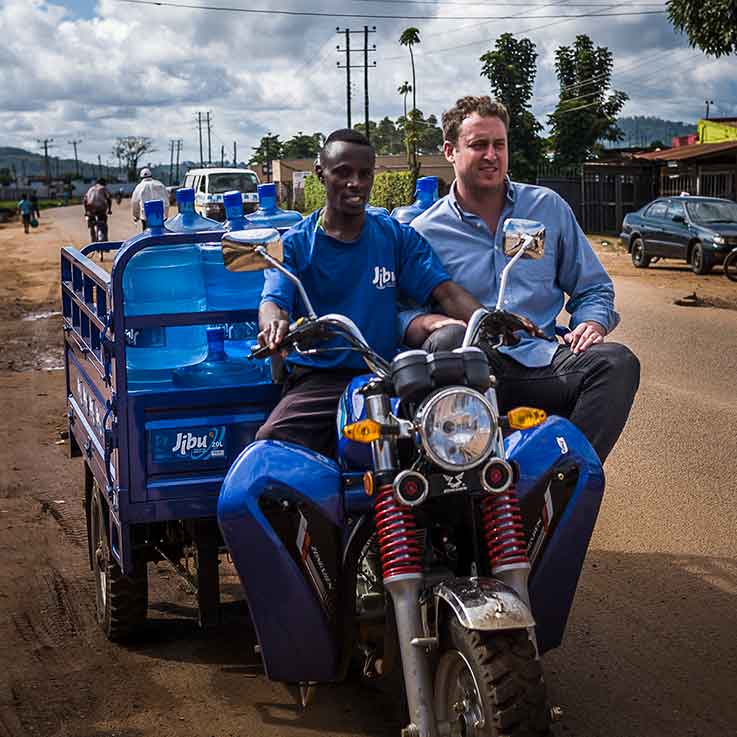Jibu is a social enterprise that has brought about significant change in the water industry in various developing countries by providing affordable, clean water through a franchise model.
Founded in 2012 by Randy Welsch and Galen Welsch, Jibu operates in countries such as Kenya, Uganda, Rwanda, and Zambia.
Jibu’s innovative business model revolves around providing the necessary equipment, training, and ongoing support to local entrepreneurs, who own and operate their own water treatment and distribution businesses. The franchisees sell affordable, clean drinking water to their communities, making a profit while also addressing a critical need.
The impact of Jibu’s model is impressive. As of 2021, Jibu has over 100 franchisees in East Africa and has served over 1 million customers. According to Jibu’s website, “franchise owners earn a return on investment of 20-25% and create an average of 7 jobs per franchise.” In addition to providing jobs, Jibu’s franchise model empowers local entrepreneurs to build sustainable businesses and improve the overall well-being of their communities.
Since its inception in 2012, Jibu has established over 70 franchises, providing clean water to over 1 million people in East Africa. The company has also created over 800 jobs, with 75% of those jobs held by women.
According to Randy Welsch, co-founder of Jibu, the company’s approach is designed to create long-term impact. “We want to create sustainable, community-centered businesses that can thrive over time,” says Welsch. “We’re not just about handing out aid or charity, but about creating real economic opportunities for people.”
Jibu’s philosophy of creating sustainable, community-centered businesses has been successful in creating a positive impact on communities. For example, one Jibu franchisee in Rwanda, has been able to send her children to school with the profits from her business. She has also been able to grow her business at the level of building a decent house for her family.
Jibu’s commitment to social and environmental impact is also evident in its use of sustainable technology. The company uses a water treatment system that is powered by solar energy, reducing its reliance on fossil fuels and lowering its carbon footprint.
In addition, Jibu’s water treatment process produces a byproduct called “brine,” which is used to make cleaning products that are sold to local businesses, creating an additional revenue stream and reducing waste.
Overall, Jibu’s innovative approach to the water industry has been transformative in many communities in East Africa. By creating economic opportunities for local entrepreneurs and providing access to clean drinking water, Jibu has demonstrated the potential for business to address social and environmental issues while also creating economic value.



















